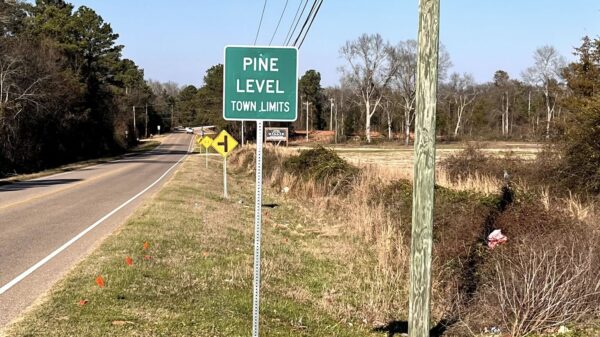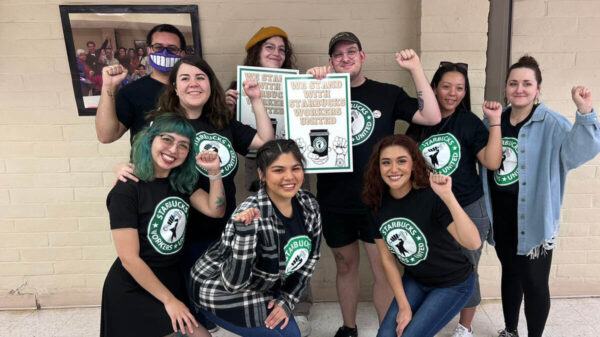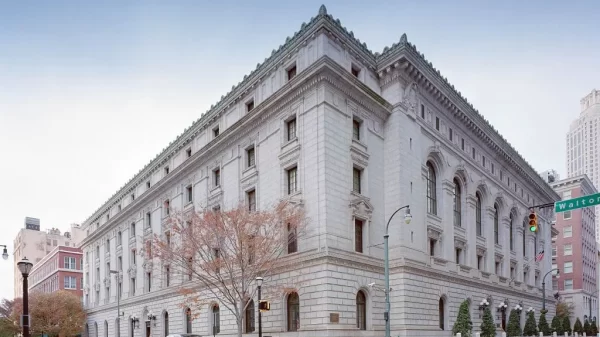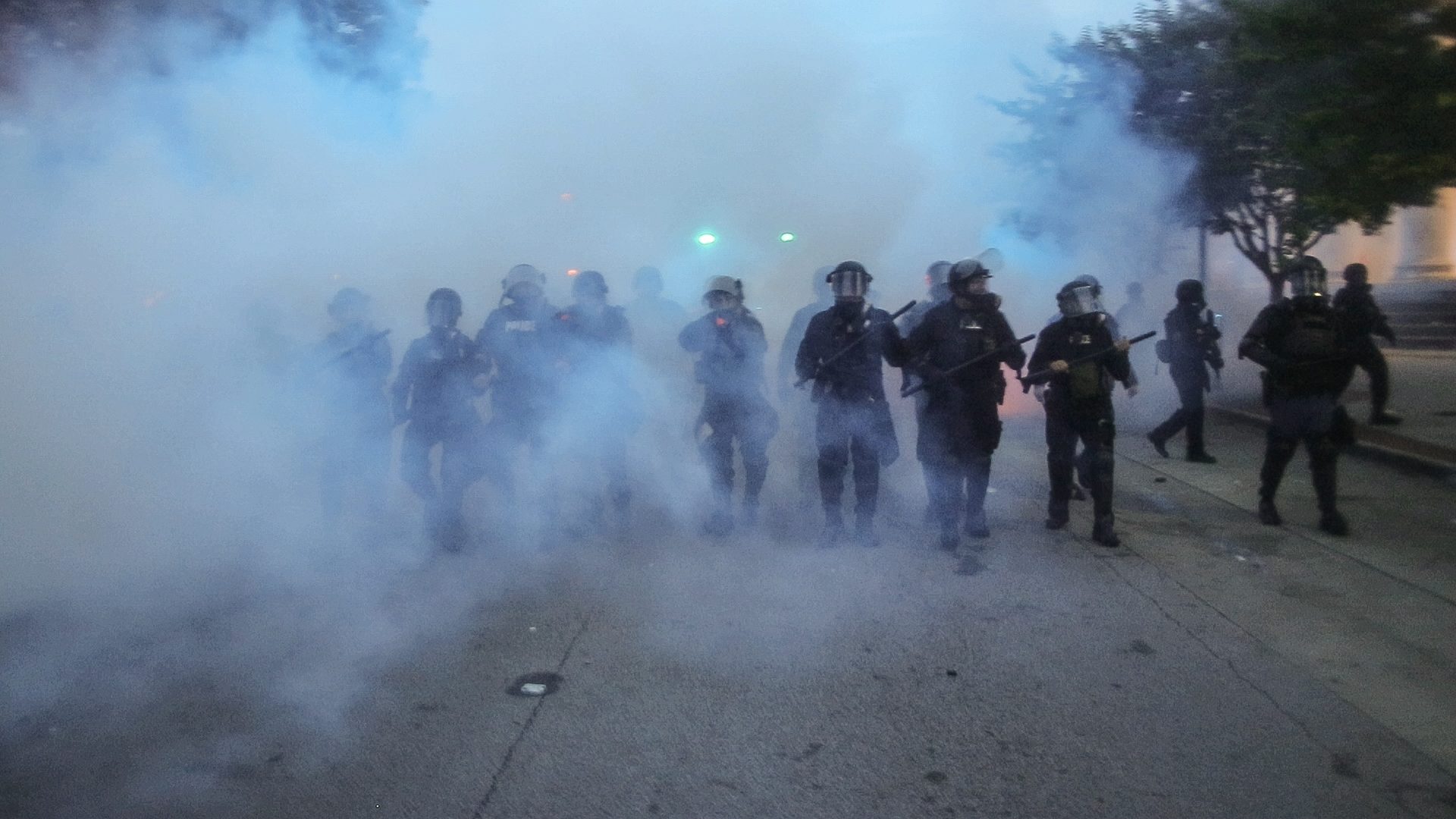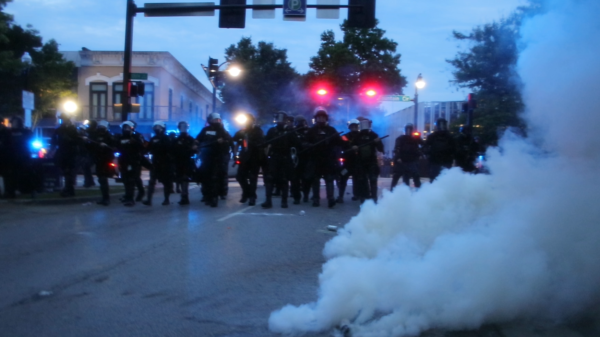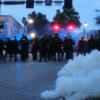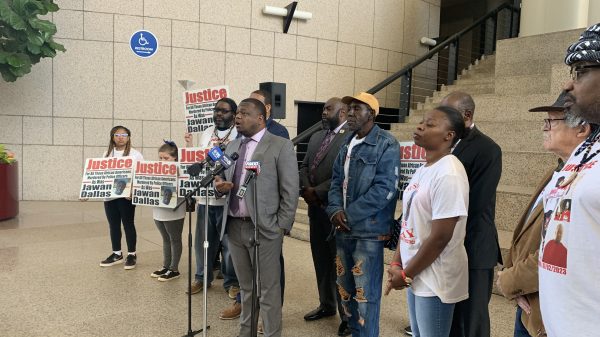A national group that advocates for police reform is planning a public pressure campaign to call for official action to improve how law enforcement functions in Huntsville.
Adem Sengal, a senior organizer with the Grassroots Law Project, said that since the George Floyd protests, his organization has been active in cities that have large minority populations. Its volunteers make thousands of phone calls, circulate petitions and organize demonstrations to convince elected officials to make changes that improve public safety and save police time and resources that can be redirected to addressing serious crimes, he said.
Huntsville was one of many cities where police responded violently to nationwide protests against police violence, but the stance of its elected leaders in the aftermath sets it apart.
“Huntsville is pretty much the only city where an incident like this happens and the city council doesn’t respond with any action at all,” Sengal said. “They respond with actively preventing changes.”
He reached out to Mayor Tommy Battle and each member of the Huntsville City Council in October. He wanted to discuss policy actions that could address community concerns like his organization did in Louisville, Kentucky, where it worked with city leaders to pass “Breonna’s Law,” banning the kind of no-knock warrant that resulted in the killing of Breonna Taylor.
Huntsville officials were unwilling to set up meetings, Sengal said. Instead, he was directed to contact organizers with the Citizens Coalition for Justice Reform, a group of local residents who had also been unable to get the council to seriously engage in conversations about reform measures.
Battle has insisted that the council needs to wait for the Huntsville Police Citizens Advisory Council to finish its investigation into police use of force against peaceful protesters on June 1 and 3. Local activists have voiced many ongoing grievances against the way law enforcement routinely operates in the city, but they say their calls for legislation get stonewalled by officials’ claims that due process requires individual incidents to be investigated before any decisions can be made about policy changes.
“The fact that city leadership is trying to use this incident as some sort of cover so that they don’t actually have to take any action is really shocking and unacceptable,” Sengal said.
Councilmember Bill Kling said that while public statements have been put on hold until the HPCAC delivers its report, expected next month, he has been meeting individually with local activists to discuss policy proposals. He hopes to have some ready for the council to take action on rather than spending more time researching what they might do.
“I think once the advisory committee’s findings come out, then I feel like, okay, there’s a muzzle that’s been released and I can, you know, make my statements, bring up my proposals and see where we go from there,” Kling said.
These include making the department more transparent by making its policies and training procedures available online, some of which have been done already, and hiring a full-time public information officer, he said.
There should be new rules to reserve the use of tear gas for extreme situations only, Kling said, and the department should beef up its mental health and de-escalation training.
Each item is on CCJR’s list of desired reforms.
One important step he said Huntsville should take is to implement alternatives to policing. He cited a Washington Post story from July that followed Huntsville Police Officer Thomas Parker, who had just completed a mental health training course, on a mental health call. A woman in crisis had access to a gun and wasn’t initially cooperative, setting the stage for potentially lethal use of force, but it ended peacefully — apparently due to luck rather than anything taught during the 16 hours of training.
A fellow officer is quoted in the story talking to Parker after the incident: “They put things on us that should not be related to law enforcement, and then when you screw up because you’re not a specialist, you’re held accountable.”
The national conversation about race and policing has been warped by polarized narratives about concepts like defunding police. Many understand that to be a punitive measure against police, but the activists from whom those calls originate say that it means reallocating funding to the kind of specialists the Huntsville officer lamented not having.
Sengal said the story illustrates that communities need to rethink what public safety means in order to stop sending officers into situations they’re not equipped to handle.
“And the officers understood what everyone should understand, which is that 16 hours is not enough, and that officers who are trained with 188 hours of firearm training and 544 hours of training in physical control tactics are not the best people, after just 16 hours, to respond to mental health issues,” Sengal said.
Officers know it, the community knows it and neither group wants police being tasked with resolving situations they don’t have the expertise to resolve, but policy dictates whether they will be. So the public pressure campaign will aim to get city officials to change the policies.
As Kling sees it, much of the problem comes down to a lack of public trust and a perception that the department hasn’t done enough outreach, although he said there have been programs like ride-alongs that many residents just don’t know about. Work needs to be done to close the trust gap, he said, but it needs to balance the fixes with all that the department gets right.
Sengal said that so far, Huntsville has demonstrated some of the most institutional resistance and worst responses to calls for change that he’s seen around the country, and is making the needed changes a lot harder than they have to be.
Citing the case of William Darby, a Huntsville officer charged with murder for fatally shooting a man having a mental health crisis, and the violent dispersal of protesters in June, Sengal said he finds it shocking how consistently city leadership has gotten behind its department and refused to hold police accountable. In Darby’s case, the council voted to spend up to $125,000 of taxpayer money for his legal defense.
“It seems, kind of at a fundamental level, the city council doesn’t want to acknowledge the scale of the problem they have,” Sengal said.












